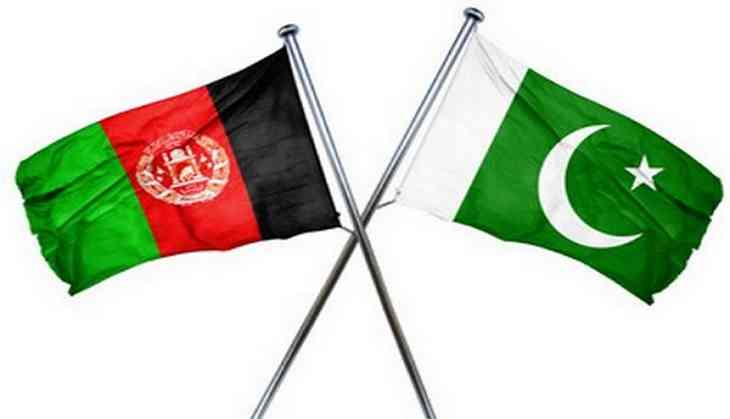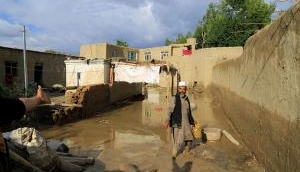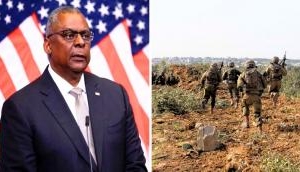
Pakistan's internal assessment about the future of Afghanistan sees the neighbouring country engulfed in a 'civil war' again with the US and the Taliban failing to reach a peace deal, a media report said Monday.
The search for peace in the war-torn country remained elusive so far despite hectic efforts to end the bloodshed.
The US last week resumed peace talks with the Afghan Taliban in Doha, Qatar as part of ongoing efforts to seek a political end to the 18-year long conflict, the Express Tribune reported.
The Afghan Grand Council, commonly known as Loya Jirga, convened by President Ashraf Ghani ended on Friday with unanimous calls for peace with the Taliban. Ghani offered the Taliban ceasefire and promised to release 175 Taliban prisoners ahead of the holy month of Ramazan.
These developments may have renewed hopes for a peace deal but internal assessment by Pakistan presents a grim picture.
"We do not want to be pessimistic, but the situation on the ground suggests that there is a remote chance of the ongoing talks between the Taliban and the US leading to any peace deal," said a senior Pakistani official, who is part of the team dealing with Afghan affairs.
His perspective was part of a broader internal assessment of Pakistan about the future of Afghanistan.
The crux of that assessment, exclusively shared by a senior official with the paper, is that Afghanistan in all likelihood is heading towards a civil war'.
The official, who spoke on the condition of anonymity, said that there were a number of factors which, according to Pakistan, might push Afghanistan towards further unrest.
The key factor includes the deepening divide within the Afghan society on the future of their country.
Even at the recently held Loya Jirga, several prominent Afghan politicians - including Ghani's government partner Dr Abdullah Abdullah - boycotted the gathering of over 3,000 delegates.
Also, the Taliban are not willing to hold direct talks with the government.
"This speaks volume of the challenge Afghans have to deal with, the official added.
The flip-flop approach by the US is also adding to the complexity of the Afghan problem. "People, who were all those years kept in Guantamo Bay, today are sitting across the table with Americans to discuss the peace deal."
In the present situation, according to Pakistan's assessment, there are more chances of Afghanistan slipping into the civil war' than reaching a peace deal.
However, the official said the civil war' did not necessarily mean the Taliban would return to Kabul.
"After the Soviets left Afghanistan in 1989, it took the Taliban more than six years to overpower their adversaries," he recalled.
When asked whether Pakistan was concerned at being made a scapegoat' in case peace efforts collapsed, the official insisted that Islamabad could not be blamed for any failure.
"We have now very limited influence over the Taliban," the official claimed.
It is believed that in view of the grim perspective of any political solution, Pakistan is now trying to maintain a low profile in those talks.
Unlike, the earlier talks held in the United Arab Emirates (UAE), Pakistan is not directly taking part in the ongoing Doha parleys, although it has facilitated the process.
When asked if Pakistan was preparing to deal with possible negative fallout of no peace deal in the neighbouring country, the official said contingency plans' were being worked out.
One area that Pakistan has been working on for a couple of years is to fence the long and porous border with Afghanistan.
The fencing is primarily meant to ensure better border security and control the irregular movement of people, something that militants always take advantage of.
In the event of further instability, there is fear of new influx of refugees.
"The fencing," Pakistan believes, "can help manage the chaos as people are allowed to cross the border only on designated points.
"The absence of any political solution will likely jeopardise Pakistan's plan to ensure the return of more than 2.5 million registered and unregistered Afghan refugees," the official admitted.
-PTI







![BJP's Kapil Mishra recreates Shankar Mahadevan’s ‘Breathless’ song to highlight Delhi pollution [WATCH] BJP's Kapil Mishra recreates Shankar Mahadevan’s ‘Breathless’ song to highlight Delhi pollution [WATCH]](http://images.catchnews.com/upload/2022/11/03/kapil-mishra_240884_300x172.png)

![Anupam Kher shares pictures of his toned body on 67th birthday [MUST SEE] Anupam Kher shares pictures of his toned body on 67th birthday [MUST SEE]](http://images.catchnews.com/upload/2022/03/07/Anupam_kher_231145_300x172.jpg)






